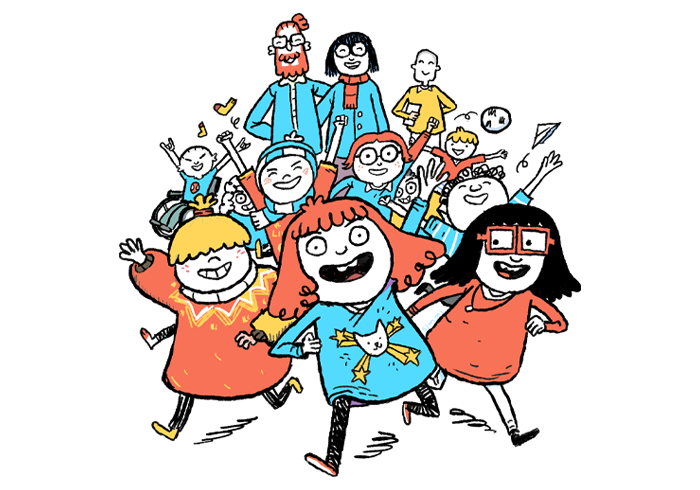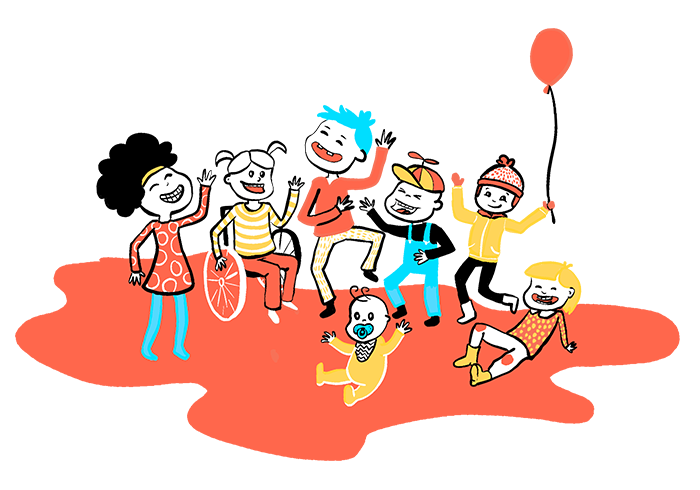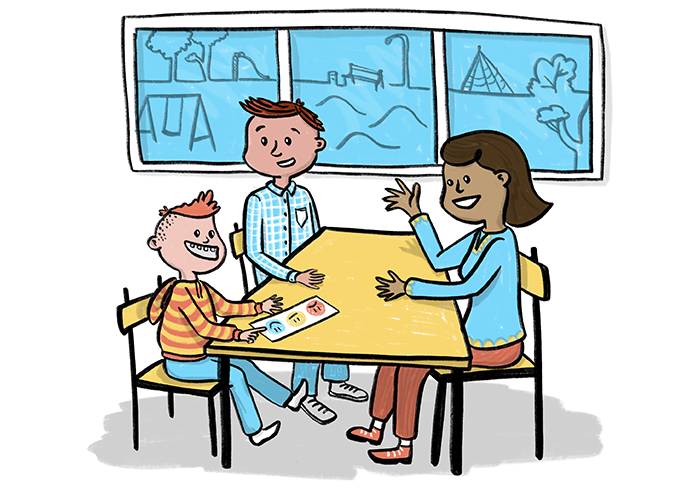The school

Vesturbæjarskóli is a school for children in grades 1–7. The school is located at the corner of Framnesvegur and Sólvallagata in the old Vesturbær. About 50 people work at the school and there are about 300 students. Vesturbæjarskóli is a UNICEF Rights Respecting School, emphasizing building a democratic school environment and systematically cultivating knowledge, skills and attitudes that help children become critical, active and competent participants in society.
Vesturbæjarskóli
Vesturbæjarskóli was founded in 1958. It initially occupied the old Nautical College building at Öldugata 23, which had housed Vesturbær Secondary School. In its first year, Vesturbæjarskóli had 250 students in 10 classes. This was considered spacious compared to other Reykjavík schools at the time. Hans Jörgensson was the first principal of Vesturbæjarskóli.
Vesturbæjarskóli's policy
The motto of the Vesturbæjarskóli is respect, well-being, and success. Using the motto as a guide, we prioritize kindness, warmth, and caring for the prosperity of students and thereby foster a positive school spirit. Our staff is committed to creating a positive and constructive environment where everyone feels good.
Staff
The school aims to have qualified and well-educated staff with diverse professional knowledge and experience. The school should be a desirable workplace where professional practices, care and cooperation are dominant factors.
Operational plan
The annual operational plan outlines the school's strategy, guiding principles and goals. It includes the school calendar, information on staff roles, organization of the school year, support services, events and other aspects of the school's operations each year.
School calendar
A school calendar is issued for each school year. It shows when students should be in school, which days deviate from the regular school day, and which days students have off. The calendar is interactive, with descriptions of school year events.

Procedures and plans
The Prosperity Wheel
Our Prosperity Wheel contains plans and procedures related to children's education, well-being and relationships. It includes plans for child prosperity, preventative work, school attendance, surveys and diagnosis, LGBT+ friendly school, child protection, gender equality plan and anti-bullying plan.
Safety and health plan
Our employee safety and health plan serves as the foundation for effective workplace safety practices and works to promote the safety and well-being of all staff at Vesturbæjarskóli.
School rules
Vesturbæjarskóli's rules are based on the UN Convention on the Rights of the Child. The basic premises of the Child Rights Convention serve as the starting point for all decisions made in school operations and are reflected in the interactions of everyone in the school community.
Parent cooperation
We are all in this together, and as the proverb goes it takes a village to raise a child. Reykjavík City schools make targeted efforts to consult with parents and enhance their involvement in schooling. All schools in Reykjavík City have an active parent association.

School council
Primary schools must have an active school council that serves as a forum for consultation between the principal and the school community on the school operation. The school council participates in shaping policy for the school and defining its unique character.
Assessment of school operations
Internal assessment is a professional analysis of school operations. It assesses how well quality and performance goals are met based on predetermined criteria. The assessment allows schools to thoroughly understand their work and find the best ways to improve for students. The goal of assessing and monitoring quality is to provide insight into schooling, its outcomes, and its development.